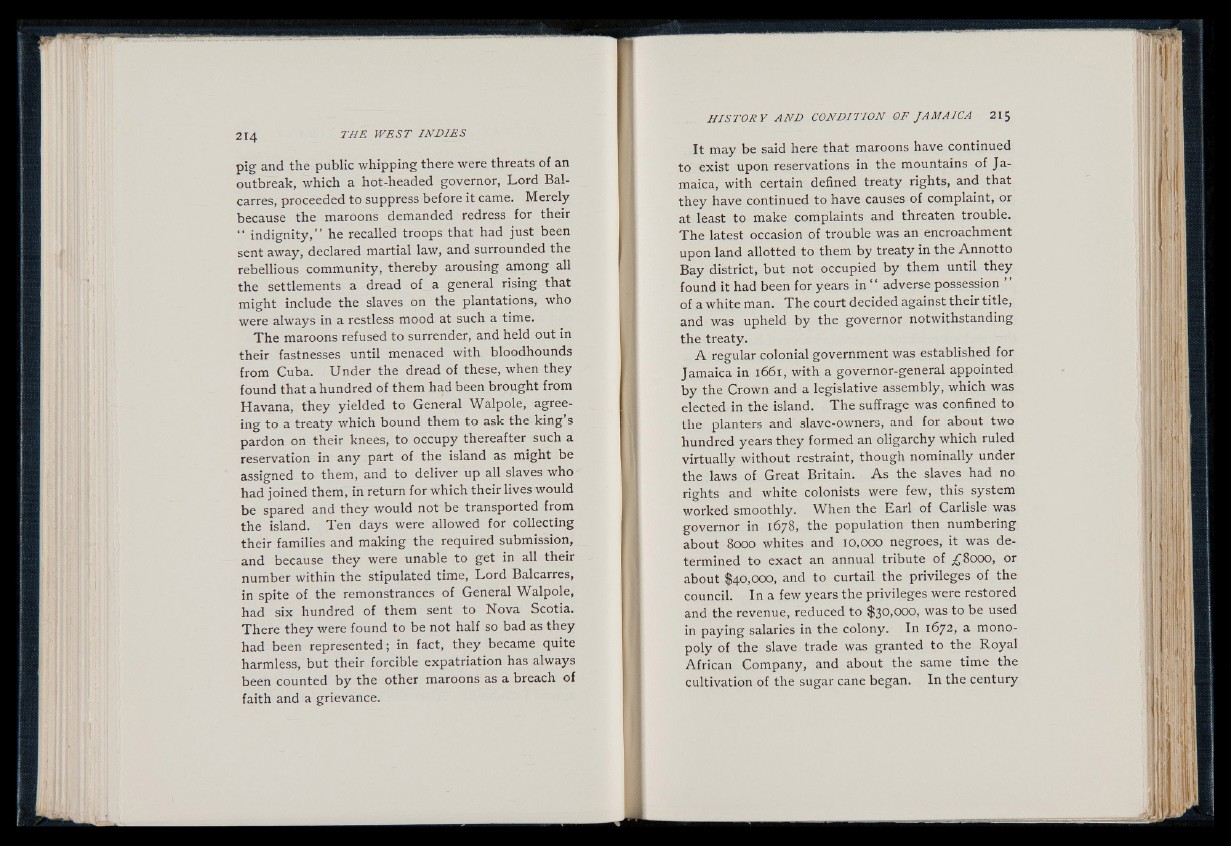
pig and the public whipping there were threats of an
outbreak, which a hot-headed governor, Lord Bal-
carres, proceeded to suppress before it came. Merely
because the maroons demanded redress for their
“ indignity,” he recalled troops that had just been
sent away, declared martial law, and surrounded the
rebellious community, thereby arousing among all
the settlements a dread of a general rising that
might include the slaves on the plantations, who
were always in a restless mood at such a time.
T h e maroons refused to surrender, and held out in
their fastnesses until menaced with bloodhounds
from Cuba. Under the dread of these, when they
found that a hundred of them had been brought from
Havana, they yielded to General Walpole, agreeing
to a treaty which bound them to ask the king s
pardon on their knees, to occupy thereafter such a
reservation in any part of the island as might be
assigned to them, and to deliver up all slaves who
had joined them, in return for which their lives would
be spared and they would not be transported from
the island. Ten days were allowed for collecting
their families and making the required submission,
and because they were unable to get in all their
number within the stipulated time, Lord Balcarres,
in spite of the remonstrances of General Walpole,
had six hundred of them sent to Nova Scotia.
There they were found to be not half so bad as they
had been represented; in fact, they became quite
harmless, but their forcible expatriation has always
been counted by the other maroons as a breach of
faith and a grievance.
It may be said here that maroons have continued
to exist upon reservations in the mountains of Jamaica,
with certain defined treaty rights, and that
they have continued to have causes of complaint, or
at least to make complaints and threaten trouble.
The latest occasion of trouble was an encroachment
upon land allotted to them by treaty in the Annotto
Bay district, but not occupied by them until they
found it had been for years in “ adverse possession
of a white man. T h e court decided against their title,
and was upheld by the governor notwithstanding
the treaty.
A regular colonial government was established for
Jamaica in 1661, with a governor-general appointed
by the Crown and a legislative assembly, which was
elected in the island. T he suffrage was confined to
the planters and slave-owners, and for about two
hundred years they formed an oligarchy which ruled
virtually without restraint, though nominally under
the laws of Great Britain. A s the slaves had no
rights and white colonists were few, this system
worked smoothly. When the Earl of Carlisle was
governor in 1678, the population then numbering
about 8000 whites and 10,000 negroes, it was determined
to exact an annual tribute of ¿8000, or
about $40,000, and to curtail the privileges of the
council. In a few years the privileges were restored
and the revenue, reduced to $30,000, was to be used
in paying salaries in the colony. In 1672, a monopoly
of the slave trade was granted to the Royal
African Company, and about the same time the
cultivation of the sugar cane began. In the century